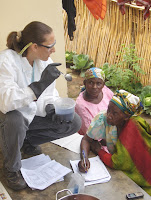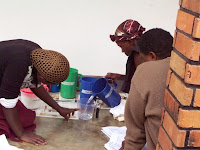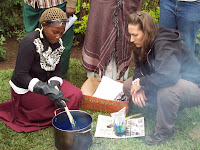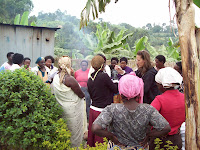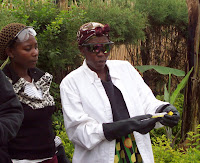“All things work
together for good for those who love God and are called according to His
purposes. For whom He foreknew, He also predestined to be conformed to the
image of His son, that He might be the firstborn among many brethren.” – Romans 8:28-29 (theme of Bwera Outreach)
About four months ago, George and I visited the town of
Bwera located about two and a half hour drive southwest of Ft. Portal, in a
effort to renew our visas’ through the DR Congo border. We unexpectedly had to stay overnight which opened
a door for us to fellowship with the pastor and his family of Calvary Chapel
Bwera (CC Bwera). Pastor Joachim is a
national who attended the Calvary Chapel Bible College in Kampala some years
back. He has since returned to his hometown
of Bwera and planted a church. After
sharing with him my ministry with the women in Ft. Portal, Pastor Joachim
invited me to return to encourage and teach the women from the Word of God and to
share with them some practical skills that would empower an enable them to
provide an opportunity to generate some income for their families.
 |
| Luan teaching the women how to use a receipt. |
After much prayer and preparation, final arrangements were
made for Emma and I to travel to Bwera to lead a women’s outreach at the end of
June. The first two days of our stay in
Bwera we were busy preparing for the outreach.
As we moved around town, Pastor Joachim invited women from other churches
and from around the town to attend the outreach. Praise the Lord, more than one hundred and
seventy women attended the two-day outreach. Some attended even though their own pastor’s instructed
them not to attend out of fear and selfish motives. The small church building
where we gathered was packed with women, often overflowing out the doors. The
leaders and students’ from the Bwera Technical Institute (BTI), located next to
the church, also attended and blessed us with their generosity and catering
skills. They allowed us to use their large cooking pot to bake our cakes in and
helped to serve us lunch each day.
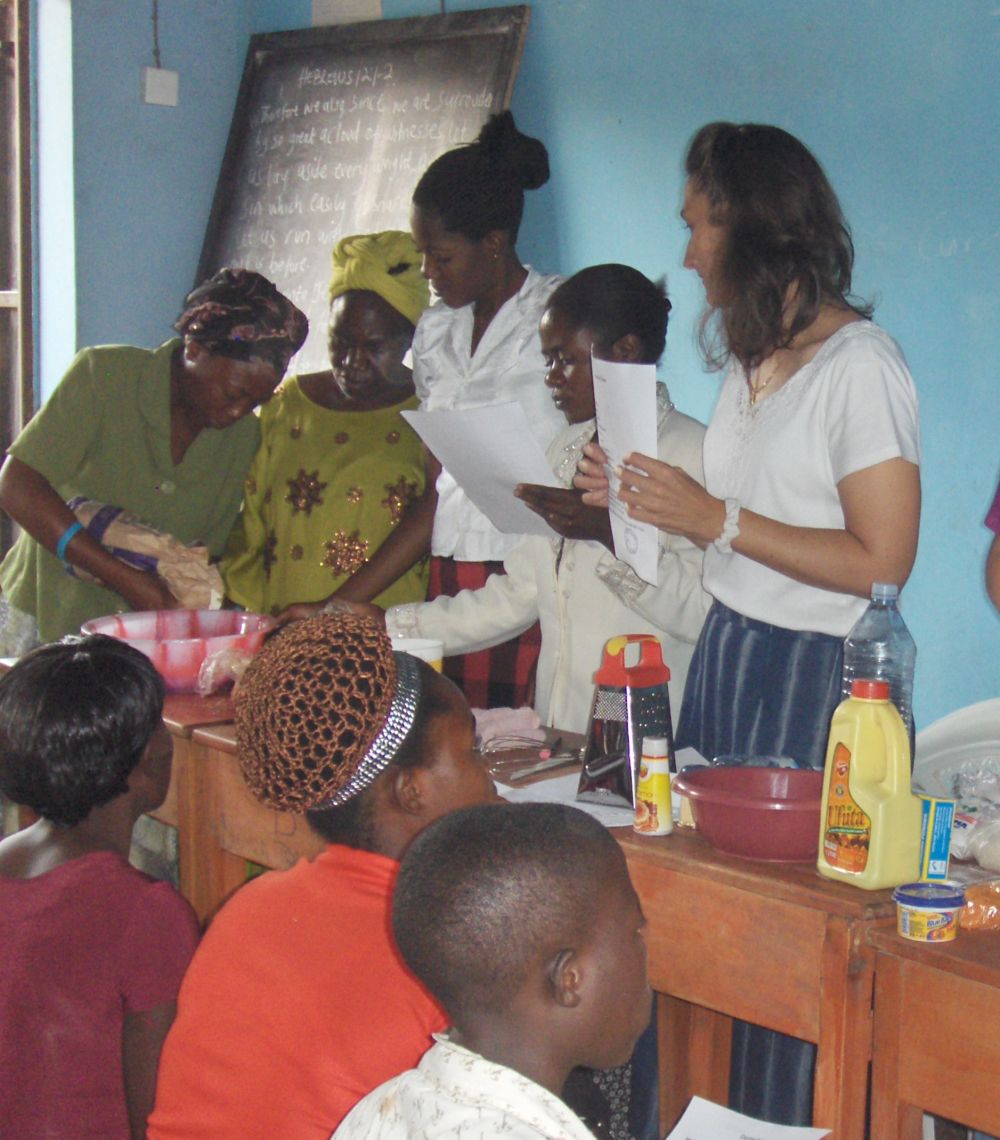 |
| The women mixing the ingredients together for a carrot cake. |
Each day we introduced the ladies to the basic ingredients and
the standards of measures used in baking a cake. We also instructed the ladies on how to read
and follow a receipt. On the first day
of the outreach we applied what we learned by following a receipt to make a
couple of banana avocado cakes. The
following day we made several carrot cakes. Each day after lunch, Emma taught
the ladies how to make butter and royal frosting. We also took several sets of
cake decorating tips with us. Emma
demonstrated how to use food coloring to mix various colors of frosting and how
to use the cake decorating tips. The
ladies seemed to enjoy themselves as they tried their hands at mixing different
colored frosting and using the various decorating tips to make different
designs. After enjoying the fruit of our
labors by tasting the cakes that we made, we ended each day with a Bible study
and a time of prayer, praise and worship.
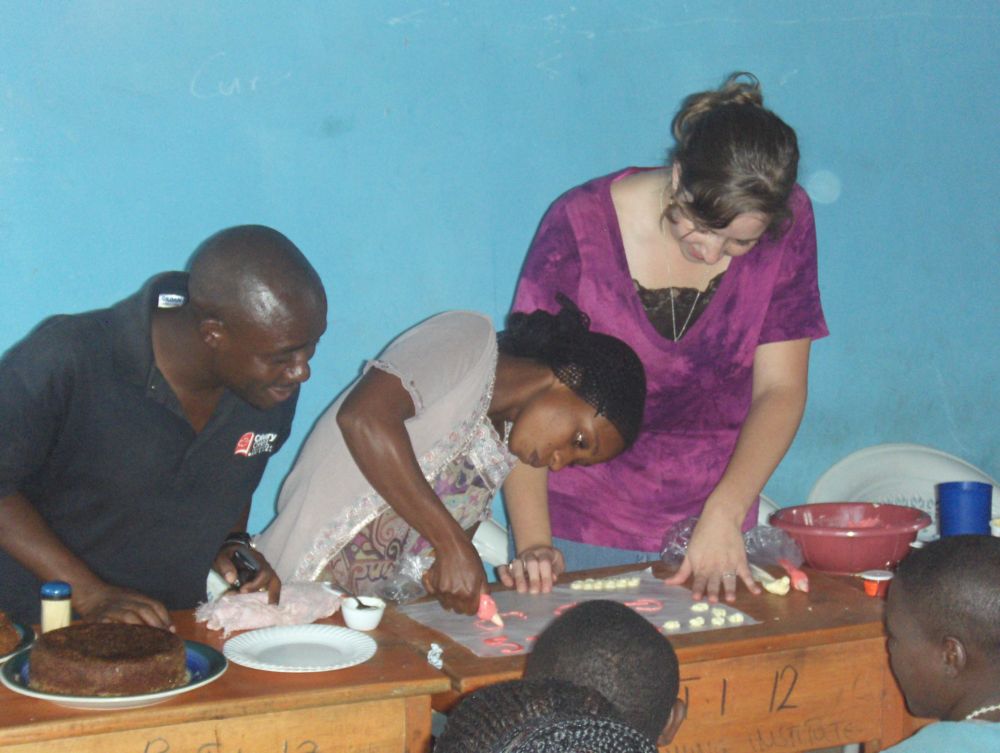 |
| Pastor Joachim watching his wife Joyce try her hand at using the decorating cake tips with pink frosting. |
 |
| Multiple cakes baking inside large, covered iron pot. |
 |
| Lunch consisting of cooked bananas and beans is served by the BTI students for about one hundred women each day. |
 |
| One of the ladies sharing how she was encouraged through our Bible study together. |
The ladies also had an opportunity to share their thoughts
with us about our time together. Many of
them expressed their thankfulness and appreciation that we opened the training
to everyone and that it was free of charge. Some of them shared their enthusiasm
to use what they have learned to get started baking cakes right away. Still others shared that they were encouraged
by the Bible study in which we looked at the life of Joseph as an example for
us to “know that God makes all things work together for good to those who love
God and are called according to His purposes.”
I am excited to share with you that since our visit, a group
of about twenty ladies who attended the training have formed a women’s
fellowship at the church and are meeting together regularly to bake cakes for
selling and for a time of prayer. Please pray that the women will use what they
have learned to earn extra income to provide for and bless their own families
and others. Also pray that the Lord
would do a mighty work in the hearts of the women who are attending the women’s
fellowship.
 |
Thanks to our many supporters and those who contributed for
Emma to be here, we were able to cover the cost for the outreach as well as
provide lunch for all those who attended the outreach both days. We also left them with a set of standard
measuring cups, a set of cake decorating tips and a small financial
contribution to help them purchase some of the needed items and ingredients to get
started baking. Please pray for
provision and direction as I have been invited to return again to minister to
the women in Bwera in the near future.
Blessings,
Luan










